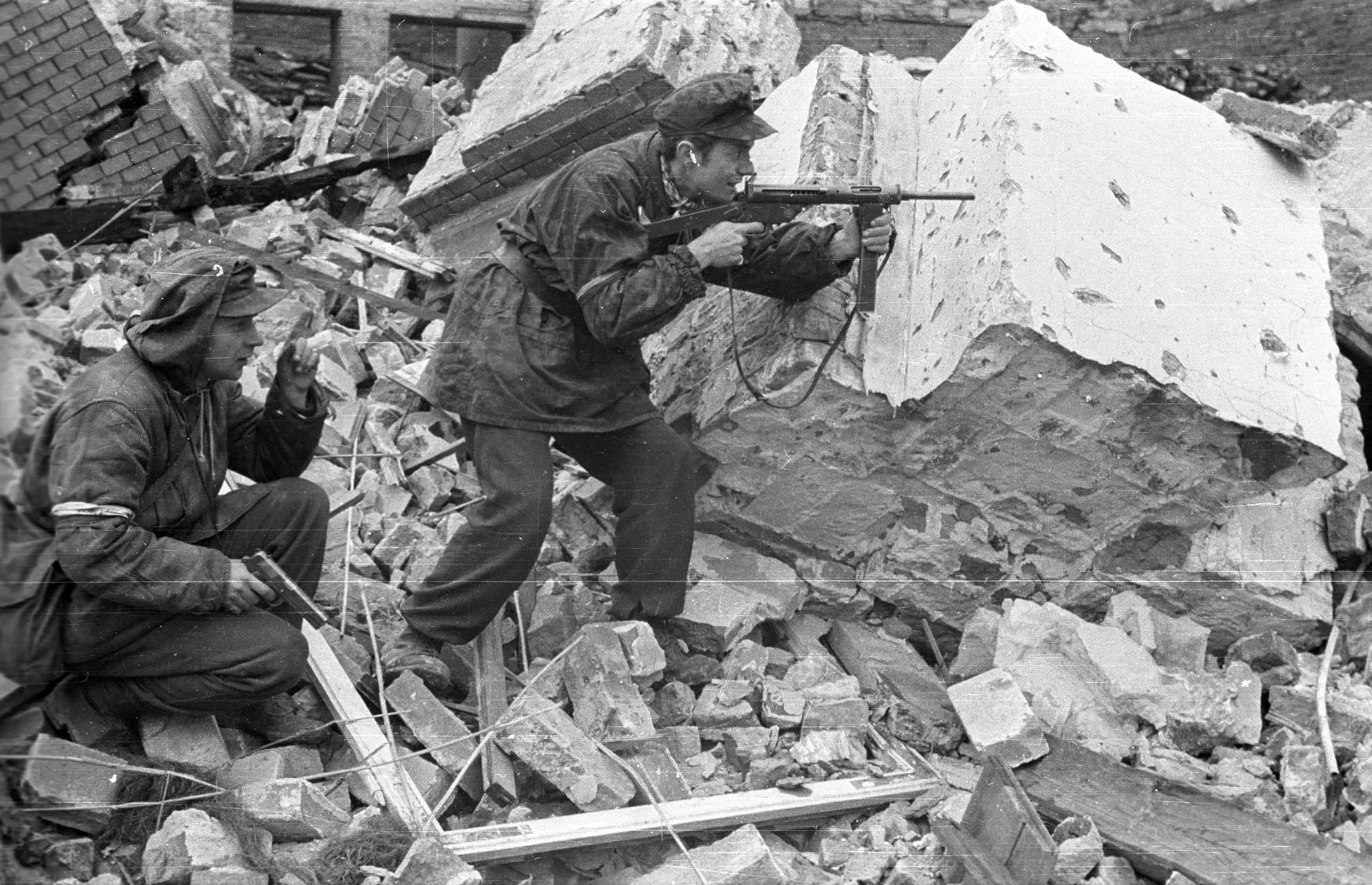On this date in history, the great Polish uprising against Nazi rule came to an end. The Warsaw Uprising ends with the surrender of the surviving Polish rebels in the city to German forces. The battle for Warsaw saw the Polish resistance seize much of the city. They had decided to act not so only out of hatred of the Nazi occupation but fear of the advancing Soviets. In August 1944, the Polish Home Army, decided that it had to act. They believed that the Soviets would occupy their country and turn it into a puppet state. The country would only be exchanging one set of foreign rulers for another. The Poles wanted their freedom and they decided to pre-empt the Soviets by seizing their country and in this way they would prevent Moscow from imposing a communist government on their homeland.
The Poles owed their allegiance to the democratic Polish government-in-exile in London. The intended to seize Warsaw before the Red Army could arrive. Thousands of Polish fighters seized much of the city, with only home-made or captured weapons. The rebellion caught the Germans completely by surprise. The Warsaw Uprising descended into street fighting. The Home Army turned building into fortresses and would launch hit and run attacks on the Germans. The Polish capital became a huge battlefield. The German High Command sent the SS to Warsaw and they managed to seize many areas of the city from the Polish Home Army. The Poles did not receive any support from the Soviets even though they were only a few dozen miles away. This was a deliberate strategy by Stalin, he wanted the Germans to destroy the Polish Home Army.

ADVERTISEMENT - CONTINUE READING BELOW
The Germans bombarded the Poles constantly. The shelled the city and in the process, they destroyed much of the historic city. The Germans also employed flame throwers to drive the Poles from buildings and bunkers. The SS committed many executions and there were mass killings of prisoners and civilians.
The Home Army fought the Germans for 63 days- but they soon were running low on food and other supplies. In particular, they were unable to locate any ammunition and they had no choice but to surrender. Stalin sealed their fate when he refused permission to the British to use Soviet bases to airlift supplies to the Polish resistance.
The Germans after the end of the fighting continued to destroy Warsaw to punish the Poles for their rebellion and defiance of Hitler. Soon after the Soviet’s launched a massive offensive and they captured Warsaw with little opposition. The Poles that may have resisted the Red Army and who would have fought for a democratic state had been killed or imprisoned by the Germans. With the failure of the Warsaw Uprising, Stalin was able to impose his will on Poland. The country was to be a puppet of Moscow until 1989.

